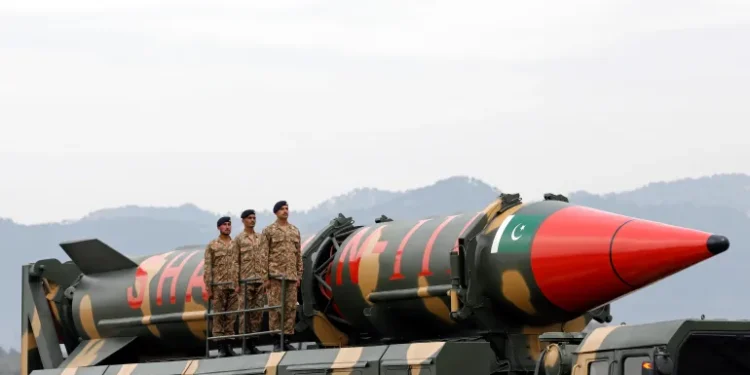Islamabad Rejects US Sanctions as Discriminatory
Pakistan’s Ministry of Foreign Affairs strongly condemned the latest sanctions imposed by the United States on its ballistic missile programme, calling them “discriminatory” and a threat to the region’s stability. The foreign ministry issued a statement on Thursday, cautioning that the measures “have dangerous implications for strategic stability of our region and beyond.”
The sanctions, announced by the US Department of State, target multiple Pakistan-based entities, including the Islamabad-based National Development Complex (NDC). The US accuses these entities of being involved in the development of Pakistan’s long-range ballistic missiles, including the SHAHEEN missile series. The measures freeze any US-based property belonging to the sanctioned entities and prohibit American individuals or companies from conducting business with them.
Allegations of Proliferation Dismissed
Pakistan’s foreign ministry dismissed the US claims, arguing that previous sanctions targeting the country were often based on “mere doubts and suspicion without any evidence whatsoever.” The ministry further criticized Washington for adopting “double standards” by offering advanced military technology to other nations while penalizing Pakistan.
“These actions are unjustified and counterproductive,” the statement said. “The discriminatory approach undermines efforts to maintain peace and stability in the region.”
US Raises Concerns Over Pakistan’s Missile Capabilities
Speaking at the Carnegie Endowment for International Peace on Thursday, Deputy National Security Adviser Jon Finer expressed concerns over Pakistan’s growing missile technology.
“Pakistan is developing long-range ballistic missile capabilities that could eventually allow it to strike targets beyond South Asia, including in the United States,” Finer said. He added that Islamabad’s actions raise “real questions” about the objectives of its missile programme.
Highlighting advancements in missile technology, Finer warned that Pakistan’s progress, including testing larger rocket motors, poses an emerging threat. “If these trends continue, Pakistan will have the capability to strike targets well beyond South Asia, including in the United States,” he stated.
Strategic Context and Historical Rivalry
Pakistan became a declared nuclear power in 1998 after conducting underground tests in response to India’s nuclear tests. Since then, both countries have regularly test-fired short-, medium-, and long-range missiles as part of their respective defence strategies.
The latest US sanctions come months after similar restrictions were imposed on foreign entities, including a Chinese research institute, for alleged links to the NDC. Despite these measures, Pakistan continues to develop its missile programme, citing the need for national defence and regional deterrence.
A Fragile Balance
Experts warn that the sanctions could further strain US-Pakistan relations and destabilize South Asia. Islamabad insists that its missile programme is crucial for maintaining a strategic balance with India, its regional rival. However, Washington remains wary of Pakistan’s intentions, particularly its ability to extend its missile range to global targets.
As the diplomatic row unfolds, Pakistan has reiterated its commitment to safeguarding its sovereignty and maintaining regional peace. “We urge the US to reconsider its approach and engage in dialogue rather than unilateral actions that risk escalating tensions,” the foreign ministry stated.
The sanctions add to the complex dynamics of South Asia’s security landscape, where nuclear-capable rivals and global powers vie for strategic influence.
Related Stories:
Iran Sends 400 Ballistic Missiles to Russia: Implications and Analysis
US Sanctions Russian Entities on Use and Transfer of North Korean Ballistic Missiles
North Korea Launches Ballistic Missiles amidst US Nuclear Submarine Arrival in South Korea
















